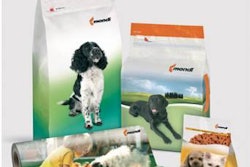
We are watching the evolution of the petfood business as the market continues to experience fundamental change. The informed pet parent has emerged: spending more while challenging brands on their commitment to better nutrition and seeking credible validation on the quality of ingredients.
Competitive strategies must evolve: As more brands start competing in the natural and organic premium segment of the business, added pressure will come on optimizing brand uniqueness and differentiation. Business models may need to be structured for what lies ahead: Consumers will hold brands accountable for their nutrition integrity thus putting pressure on managing ingredient sourcing costs and balancing issues with what the market wants. Are you ready?
These conditions will place increased demands of petfood organizations to fully invest in the development of stronger and more relevant brands and require new thinking about go-to-market strategies. Let’s take a look at the bigger issues:
- Premiumization is not a temporary adjustment in consumer preference.
- People increasingly believe there are real quality of life and health benefits from feeding a more expensive, high quality diet to their furry family members.
The vast majority of this early “trading up” segment growth has come from high-income households (US$100,000+). Saturation is inevitable and so it’s likely that the middle of the market will eventually follow the early adopters as the business matures. This will invite more competition at the premium end.
This will require small and medium sized brands to refocus themselves from push (sales) driven business strategies to marketing models (brand development): Brands must pull consumers to the shelf and work to drive emotional qualities and differentiation. A strong brand is your most important asset. Period.
The job now for every brand in the game is to mine consumer insight with a goal to acquire greater understanding of your users, their interests, habits, passions and concerns. Why they buy your brand. What they think they are paying for. This information is vital to constructing a compelling brand value proposition – one that optimizes your collection of functional, financial (not just about price), intangible (perceived) and emotional (feelings) benefits. This analysis then informs marketing strategy and communications plans. The goal is to fight rampant “sameness” among competing brands by pushing the envelope on brand uniqueness.
Today what is equally true is this unshakeable fact: The product is the marketing. Thus tools such as brand positioning and social media are just that – ways to connect with consumers more meaningfully and effectively. The product and its integrity remain at the forefront of your ability to grow and sustain a loyal customer base of those who know, trust and respect you.
In the world of social media where conversations drive perception, brand reputations can be successfully built by remaining faithful to the premise that superior pet nutrition can support a value proposition consumers will continue to pay for. To quote one of the greatest legends in the history of brand building, David Ogilvy, who weighed in on the matter of respect for what the customer knows, “The consumer is not a moron, she is your wife.”

















